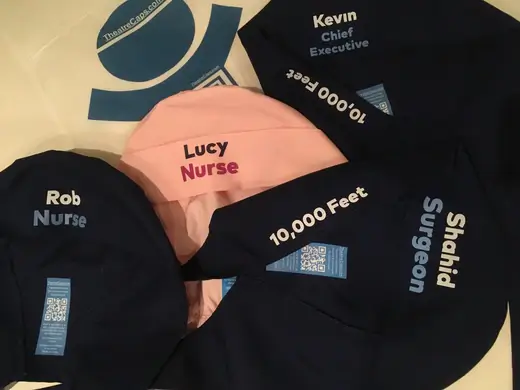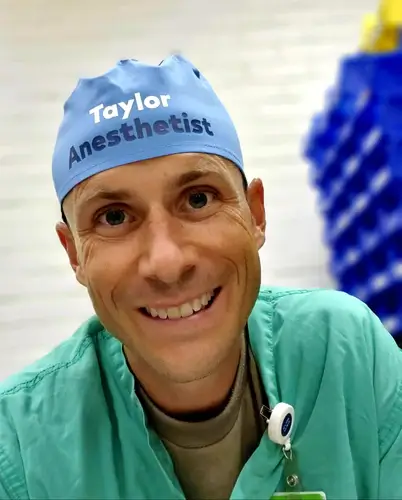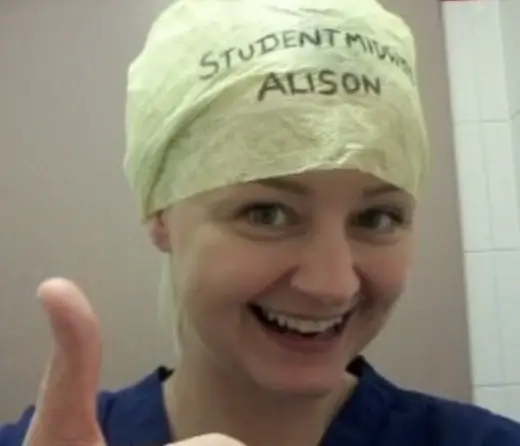
Below Ten Thousand - Rob Tomlinson
Below Ten Thousand - Rob Tomlinson
It's great to interact with so many healthcare leaders from all over the world all looking to help deliver improvements.
Rob Tomlinson is no exception - he's been striving hard to enhance communication in the operating theatre with the 'Below Ten Thousand' initiative.
I was lucky enough to commandeer his time to answer a few questions:
What is Below Ten Thousand
Below Ten Thousand is a language tool that has been innovated from the aviation industry where a ‘sterile cockpit’ is in place from ground to 10,000 Feet which is considered safety critical moments during a flight. In 1981 by recommendations from NASA declared that the aviation industry was subject to errors at take off and landing because the pilot and flight crew were getting distracted. The availability of the Black Box was able to confirm this.
Are we different in healthcare? Well research confirms that patients are harmed because of breakdown of communication causing a loss of situational awareness. In the UK we have 500 patient safety incidents called Never Events (because they never should happen). These are typically retained foreign objects in the patient during surgery and wrong body parts being operated on.
The NHS has cited that staff ‘failing to speak up’ is the major factor contributing to these Never Events. The comparison here with Aviation is how we have seen co-pilots rather die than speak up against a steep hierarchy.
The Below 10,000 Language Tool can be used by anybody in the operative team if
- They need people to focus on the task in hand (such as the WHO checklist)
- Intubation / Extubation
- Any moment your mental workload increases and there is too much distraction.
What does the research tell us about Noise? It is harmful to patients and is a communication hazard. With the increase in technological advancements and larger operative teams, it is easy to understand how and why theatres have become increasingly noisy with no means of managing the noise apart from incivility.
Why am I Championing Below 10,000
All the research sign posts its way to the Below Ten Thousand methodology. I was involved in a Never Event which was partly due to staff being distracted and losing focus. The Below Ten Thousand Tool would have prevented this and many other safety incidents.
East Lancashire thankfully employ a Just Culture but unfortunately many wanted to see me, and others punished instead of addressing the real systematic issues. My Campaign is one of Just Culture. The Never Event was mine and East Lancashire’s ‘tipping point’. We had 5 in 6 months!
Pete Smith and John Gibbs from Geelong, Melbourne were the innovators of this concept. Their tipping point was waking a 3 month old baby in an extremely noisy recovery area. Pete and I are collaborating with this by writing the 2nd edition to The Below Ten Thousand Way. Pete and myself are Keynote Speakers at the 2021 AFPP Conference.
How was it received by the staff?
Overwhelmingly positive. By introducing this East Lancashire in effect were saying –
- We do not want steep hierarchies, they are dangerous
- We want you to recognise Below 10,000 Moments such as the WHO checklist
- We don’t want people to blame each other for too much noise and distraction, the environment is in everyone’s control.
Unfortunately, there are many who do not support this and find the fact that it has been introduced by a Nurse as offensive. Adding to this how intelligent people refuse to accept comparisons to the aviation industry it has caused quite a stir. Typically, these people in their behaviour are ones who use incivility and employ steep hierarchies.
Should we change the 10,000 Feet Call Out Phrase?
The phrase has a policy signed by management with set of rules that need to employ by all team members when used such as –
- All avoidable distraction should cease such as music or social conversation.
- Anyone not involved in the care of that patient should leave theatre immediately.
- Focus on the task in hand.
Should we use Silence? Shut it/up? That is just uncivil and causes people to work away from you not with you.
We kept this phrase because it cannot be misunderstood with anything else, it is easy to understand and explain to students and new starters.
What is the problem with this?
Evidence shows that education is pivotal to reducing noise and distraction no matter what technique you use. This is why I have developed a 10,000 Feet workshop – www.tenthousandfeet.co.uk
Staff shy away from upsetting the Status Quo……. Like Will Chamberlain people chose reputation over Team Goals. This is so similar with the Theatre Hat Challenge. Many people talk about and use Below Ten Thousand for job interviews as the methodology is Concrete, this is to achieve their own goal not the patients.
Where is the campaign up to and what we need in the future?
Standardisation of the concept would certainly help. I speak about this concept far and wide and also deliver education to many hospitals. It feels as if more exposure is needed in the press. All sign posts points us to Below Ten Thousand but we have the same challenges as the Theatre Hat Challenge. This is where we need help. The Association for Perioperative Practice publically approved this concept and state that more needs to be done to reduce never events https://hubpublishing.co.uk/call-for-action-following-latest-never-events-report/
More media attention would be a great start.
Would we behave like we were Below Ten Thousand is there was Black Box in the Operating Theatre, again, research confirms we do.
We are one of the only industries that do nothing to address one of the largest causes of surgical error (noise and distraction)………..then again We Are Not On The Plane!
Thank you Rob - keep up the amazing work.
If you're interested in purchasing personalised TheatreCaps for yourself or your team then please do check out our website TheatreCaps.com




